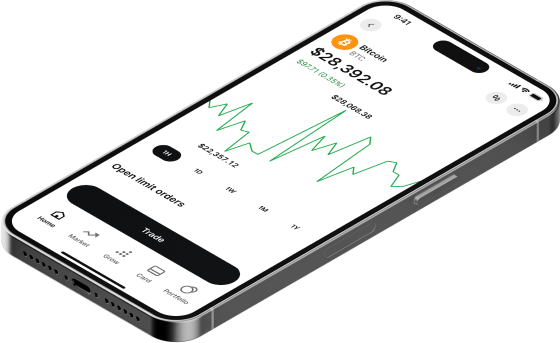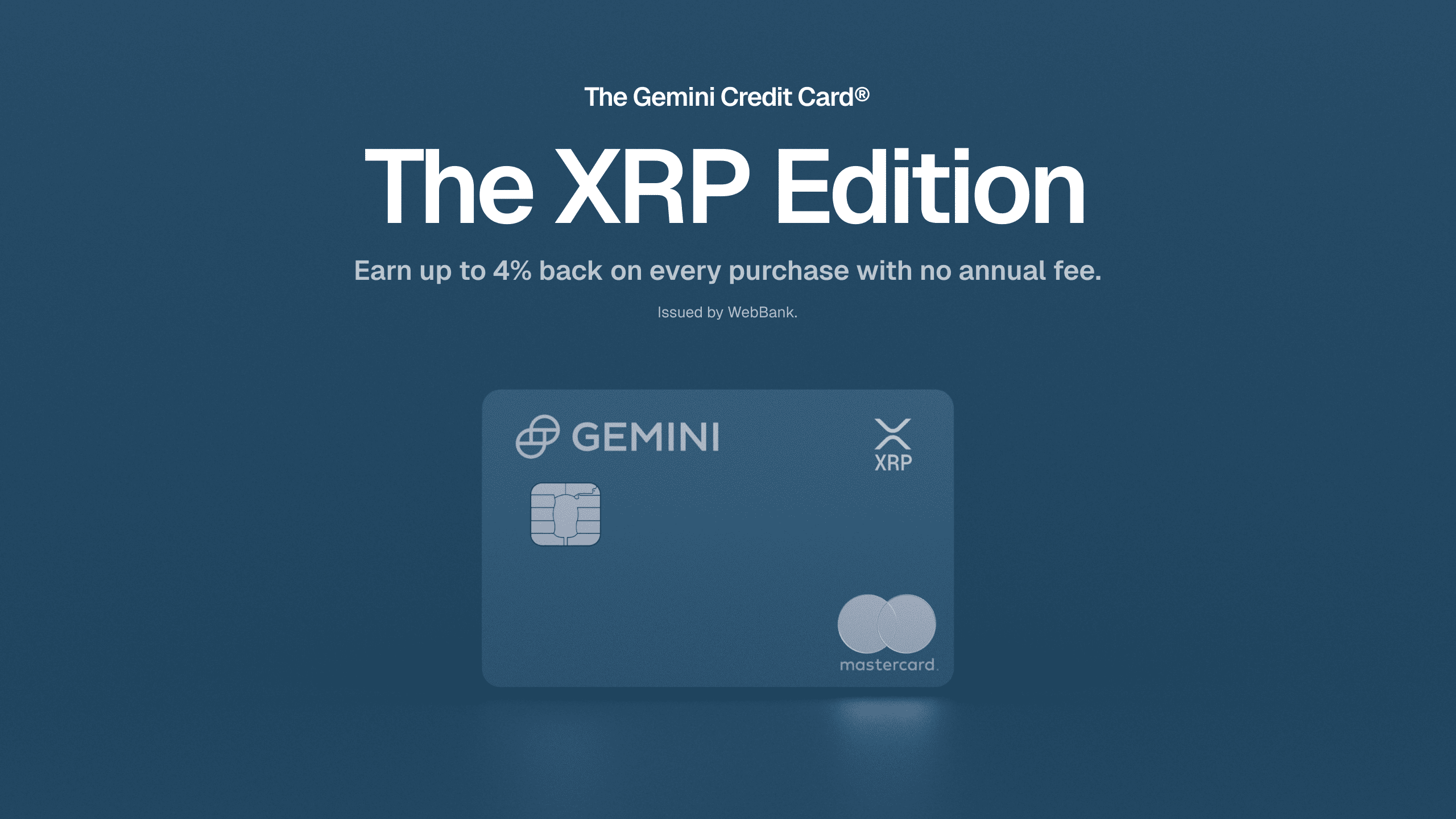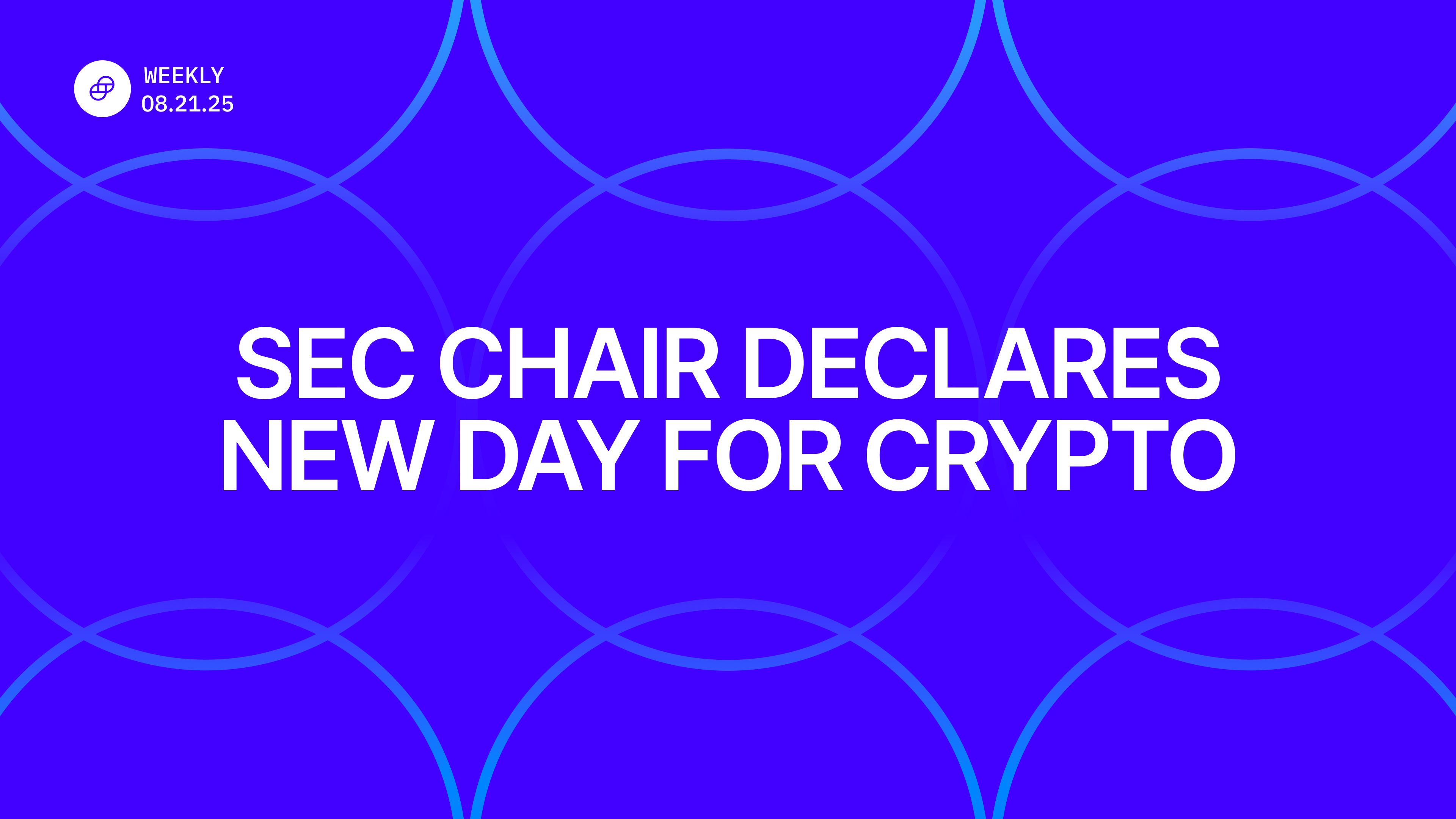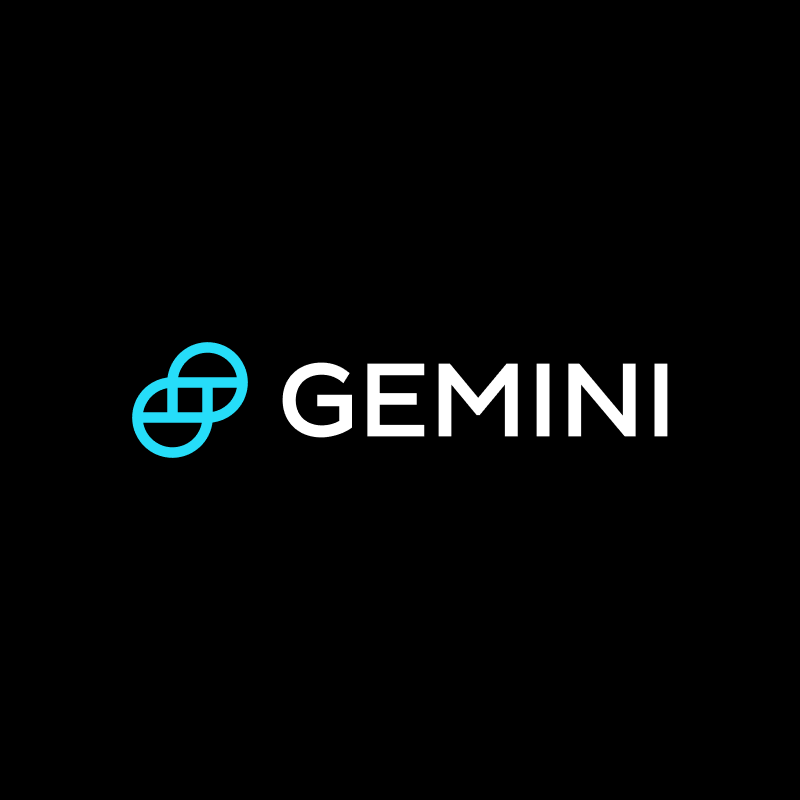Blog home
WEEKLY MARKET UPDATE
JUL 14, 2023
Weekly Market Update - Friday, July 14, 2023 - Inflation Cools, Favorable Ruling for XRP, and Bitcoin Surges Past $31k USD

Welcome to our Weekly Market Update.* Explore weekly crypto price movements, read a quick digest of notable market news, and dive into a crypto topic — this week we explore DeFi governance.
Crypto Movers
BitcoinBuzz Indicator
Crypto News
Topic of the Week

Crypto prices as of Friday, July 14, 2023, at 11:10am ET. Percentages reflect trends over the past seven days. Check out the latest crypto prices here. All prices in USD.


BitcoinBuzz data as of 5:00pm ET on July 13, 2023.
The BitcoinBuzz Sentiment Indicator entered the higher end of the Buzzing Chatter range this week amid news of cooling U.S. inflation and a legal ruling stating that XRP traded on exchanges is not a security. The largely positive news led to a notable 3-point increase in the BitcoinBuzz’s crypto news sentiment component.
Onchain BTC flows lost more than a point, but Gemini BTC volumes canceled that out by increasing just over a point. Overall, bitcoin sentiment remains strong bolstered by positive news and price action.
To learn more about the BitcoinBuzz Indicator and its components, read our introduction here. Check back every Friday for an updated score!

Takeaways
- U.S. inflation cooled in June, showing a 3% increase in prices on a yearly basis. It was the smallest annual increase since March 2021. Markets reacted positively to the news, but the Fed is still expected to raise interest rates at least once more at the end of July.
- Bitcoin remained range-bound during the first half of the week before rallying above $31k USD on Thursday following a court decision ruling that XRP is not a security.
- Ripple Labs won a favorable ruling in a landmark case brought by the SEC on whether XRP is a security. A federal judge ruled that secondary market sales of XRP do not constitute the sale of a security. XRP has rallied +60% since the ruling.
- Celsius co-founder and former CEO, Alex Mashinsky, was arrested on Thursday as allegations of fraud against him and other Celsius associates were lodged by the SEC, CFTC, and FTC.
- Ribbon Finance unveiled a proposal for a new on-chain derivatives trading platform, and saw its RBN token surge +15% this week as a result of the news.
Sign up for a Gemini account
The secure way to buy, sell, store and convert crypto. Millions use Gemini to diversify their portfolios.

Inflation Cools in June Alleviating Some Pressure on the Fed
U.S. consumer price index (CPI) data for June released on Wednesday showed a 3% increase in prices compared to a year earlier, its lowest annual rate since March 2021, and softer than expectations of a 3.1% increase. Core CPI, which excludes volatile categories such as food and energy prices, rose 4.8% from a year ago. This was also a touch below expectations of 5%. Cooling inflation could give the Federal Reserve some breathing room as it continues its battle to tame inflation from its peak of 9.1% in June 2022.
Despite June’s CPI data, the market is still largely expecting the U.S. Federal Reserve to raise rates at its next meeting later this month by another 25 basis points, as annual inflation is still above the Fed’s 2% annual target.
Markets reacted positively to the June data, with the Nasdaq and S&P 500 closing ~1.24% and ~0.74% higher on Wednesday, respectively. Although many expect a rate hike from the Fed in late July, a pause is expected at the following Fed meeting in September.
Bitcoin Range-Bound Earlier in the Week, Breaks $31k USD on Thursday
Bitcoin (BTC) continued its range-bound price action earlier in the week, but has broken through the $31K USD resistance that has capped prices for weeks after a favorable ruling for Ripple in federal court.
BTC had rallied in the build-up to the positive CPI data release on Wednesday but failed to break above the $31k USD resistance earlier in the week. In contrast to the strong equity performance following the release of inflation data, BTC slid lower later on Wednesday, dropping as low as $30.2k USD following news that government-controlled wallets moved over 9,825 BTC in two transactions, relating to the seized BTC connected to Silk Road.
Despite the dip in prices later Wednesday, BTC broke through $31k USD on Thursday after a federal court judge ruled that the sale of XRP on exchanges is not a security.
XRP Sold on Exchanges Is Not a Security, Federal Judge Rules
On Thursday, a federal judge ruled that XRP sold on exchanges is not a security, in a case brought by the U.S. Securities and Exchange Commission (SEC) against Ripple Labs, the developer of XRP. This bellwether legal battle started in December 2020 and has been billed as a seminal case for establishing whether crypto tokens are securities.
The judge’s decision applied what is known as the Howey Test to XRP sales, ruling that the “programmatic sales” of XRP on secondary markets are not sales of unregistered securities. The ruling added, however, that the sale of XRP to institutional investors did amount to an unregistered securities sale. The judge pointed to lockup periods for institutional buyers as evidence that XRP did not function as a currency or utility token in the context of institutional sales.
Since the court decision was reported, XRP has rallied +60%. Other tokens listed in a SEC lawsuit against Coinbase as unregistered securities have also rallied. For example, Solana (SOL) rallied +30% and Polygon (MATIC) rallied +20% for the week.
Former Celsius CEO Arrested and Charged With Fraud
Also on Thursday, it was reported that the co-founder of Celsius, Alex Mashinsky, was arrested and charged with various counts of fraud. Alongside the arrest, the SEC, the Commodity Futures Trading Commission (CFTC), and Federal Trade Commission (FTC) lodged suits against Mashinsky and Celsius.
Mashinsky, and other defendants, were charged with securities fraud, commodities fraud, and wire fraud, among other counts. Celsius filed for bankruptcy in July 2022. An auction for its assets was recently won by the crypto consortium Fahrenheit.
Well-Received Ribbon Finance Proposal Would Create New Derivatives Platform
Ribbon Finance (RBN), one of the first and largest Defi Options Vaults (DOV) protocols, announced a new governance proposal on Wednesday that would see Ribbon Finance merged into Aevo to create an all-inclusive on-chain derivatives trading platform.
This is set to include exchange-traded options, perps OTC derivative contracts, and structured products including passive vaults and active products. As part of the merge, RBN token holders would be given the option to migrate to the new AEVO token at a 1:1 exchange rate with the new tokens governing the protocol.
The market reacted positively to the news, with the price of RBN rallying over 15% since the start of the week.
-From the Gemini Trading Desk

What is DeFi Governance?
Decentralized Finance (DeFi) projects rely on governance mechanisms to make crucial decisions about protocol changes, hiring developers, and even changing governance frameworks.
For example, a borrowing and lending platform may use its governance process to determine the amount of collateral required to borrow money or to make changes to its interest rate model. Similarly, a decentralized exchange (DEX) platform could use its governance mechanism to allocate funds for the platform’s development or to change the way its liquidity pools are managed.
Types of Blockchain Governance
Blockchain governance first emerged as an off-chain process in which stakeholders coordinated and determined the direction of a protocol through conferences, mailing lists, online forums, and other means. However, off-chain systems often result in situations where some stakeholders are more powerful than others. In the Bitcoin ecosystem, for example, core developers and miners wield the most power because more casual users lack the formal means to register their input.
On-chain governance, a mechanism that enables stakeholders to vote for protocol changes directly on the blockchain, was developed to provide individual users with more influence in the governance process. In this system, governance proposals are often coded into smart contracts and are executed if they receive the required amount of votes to be ratified.
DeFi platforms largely use on-chain governance mechanisms. To earn the right to vote or to make a proposal, you typically must hold a governance token. Though on-chain governance has proven to be significantly user-inclusive, it has also been criticized as plutocratic, because the amount of tokens you hold often determines the weight of your vote.
Governance Tokens
Governance tokens are typically based on the ERC-20 token standard, and usually they must be staked — or held as collateral — to provide holders with the right to vote or to make a proposal. Governance tokens are typically distributed to platform users as a reward for using the protocol, and cannot be initially purchased, though they may eventually trade on exchanges after distribution.
DeFi platforms have relied on governance token awards to attract liquidity and users to their projects, and the tokens have often become objects of speculation. However, in theory, the more successful the protocol, the more valuable the governance token should be, as it gives protocol users the power to control, direct, and organize more resources by changing incentives and capital flows.
DeFi Governance Processes
Once governance tokens have been distributed, the hard work of actually governing a platform begins. The most popular DeFi governance structures all follow the same general process:
- Discussion: Discussion is the first step of DeFi governance, as stakeholders attempt to gauge the sentiments of the community around specific issues and potential changes. Discussions happen across a platform’s official governance forum and informal communication channels. Ideas and policies are ideally the center of conversation, but politicking often occurs as users try to convince others in the community to support their ideas or proposals.
- Improvement proposal: Improvement proposals are an attempt to systematically and transparently put forward new changes to the system by using a generalized template consisting of the proposal’s context, description, and potential code change. For now, most improvement proposals are technical, quantitative, and mainly submitted by developers. Once a code change is proposed, it can be discussed and reviewed by the community — then changed further if necessary. For example, using Ethereum Improvement Proposals (EIPs), Ethereum stakeholders can direct the course of the project, its governance, and its underlying blockchain.
- Quorum: A quorum is the minimum amount of participation required to pass a vote. For example, a proposal may have 100% support from voters, but if the number of token holders who vote fails to meet the minimum percentage required, then the vote is often automatically canceled. One of the biggest problems in DeFi governance is low participation. People often want to hold tokens for speculative purposes and may not want to participate in governance because it is time-consuming and/or they do not have a strong view — or any view at all — on the proposed change to the protocol.
- On-chain vote: For most DeFi protocols, one token equals one vote, and a simple majority of more than 50% is enough to execute a new proposal. The more tokens an entity holds, the more weight their vote carries. If a token holder does not want to vote directly, their voting power can be delegated to another address. Once a vote is passed, the proposal can be executed.
- Implementation: Since proposals are usually software changes, the final step in the decentralized governance process is changing the code.
See you next week. Onward and Upward!
Team Gemini
*This material is for informational purposes only and is not (i) an offer, or solicitation of an offer, to invest in, or to buy or sell, any interests or shares, or to participate in any investment or trading strategy, (ii) intended to provide accounting, legal, or tax advice, or investment recommendations, or (iii) an official statement of Gemini. Gemini, its affiliates and its employees do not make any representation or warranty, expressed or implied, as to accuracy or completeness of the information or any other information transmitted or made available. Buying, selling, and trading cryptocurrency involves risks, including the risk of losing all of the invested amount. Recipients should consult their advisors before making any investment decision. Any use, review, retransmission, distribution, or reproduction of these materials, in whole or in part, is strictly prohibited in any form without the express written approval of Gemini.
RELATED ARTICLES

COMPANY
AUG 25, 2025
Gemini Releases XRP Edition of the Gemini Credit Card and Broadens Availability of RLUSD for U.S. Customers

WEEKLY MARKET UPDATE
AUG 21, 2025
SEC Chair Declares ‘New Day For Crypto Industry’ As Powell Hints at Rate Cut

COMPANY
AUG 21, 2025